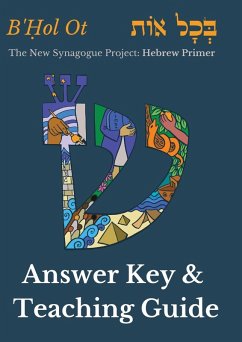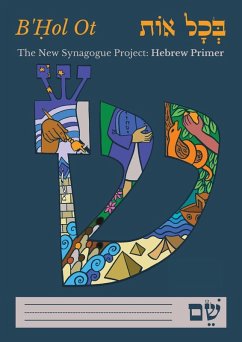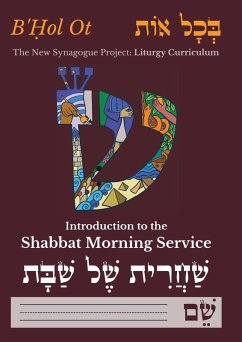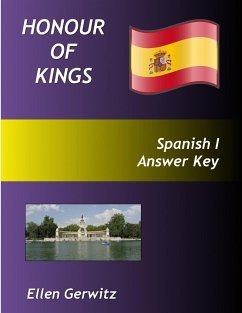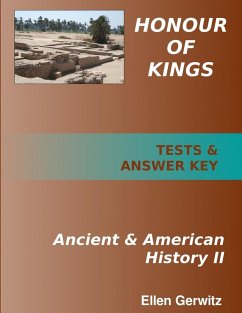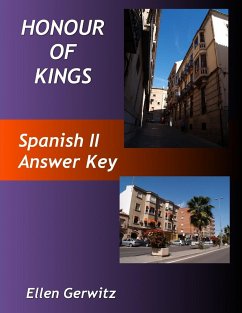
Answer Key for B'¿ol Ot
Introduction to the Shabbat Morning Service: : B'¿ol Ot Overview and Sampler
Versandkostenfrei!
Versandfertig in 1-2 Wochen
42,99 €
inkl. MwSt.

PAYBACK Punkte
21 °P sammeln!
This is the answer key for B'¿ol Ot: Introduction to the Shabbat Morning Service. B'¿ol Ot is a liturgical Hebrew curriculum. It honors the diversity of Jewish practice, offers gender-expansive language for liturgy and Nonbinary Hebrew adaptations, and emphasizes Hebrew as a rich and holy language: the language of the Torah, and of most of our blessings and prayers. The liturgical curriculum repeats and expands on concepts from the decoding and reading curriculum. It presents problems in and adaptations to Jewish liturgy, inviting students to engage and struggle with core ideas and disagreem...
This is the answer key for B'¿ol Ot: Introduction to the Shabbat Morning Service. B'¿ol Ot is a liturgical Hebrew curriculum. It honors the diversity of Jewish practice, offers gender-expansive language for liturgy and Nonbinary Hebrew adaptations, and emphasizes Hebrew as a rich and holy language: the language of the Torah, and of most of our blessings and prayers. The liturgical curriculum repeats and expands on concepts from the decoding and reading curriculum. It presents problems in and adaptations to Jewish liturgy, inviting students to engage and struggle with core ideas and disagreements from Jewish history and modern Jewish thought. For example, students will consider the idea of "chosen-ness" as it appears in prayer through excerpts from Torah, Tanakh, and modern thinkers, some of whom challenged, and some of whom affirmed, and others who modified the idea of Jews as a "chosen people." Students will consider the questions:Did God choose the Jewish people, or did the Jewish people choose God and Torah? Chosen for what? Or, what are the special obligations and responsibilities that come with chosen-ness? Students will also consider what it means to pray for a return to, or a rebuilding of, Jerusalem:Are we making physical requests, or is this request part of a spiritual plea? What is the relationship between modern political ideas and ancient spiritual yearnings?



